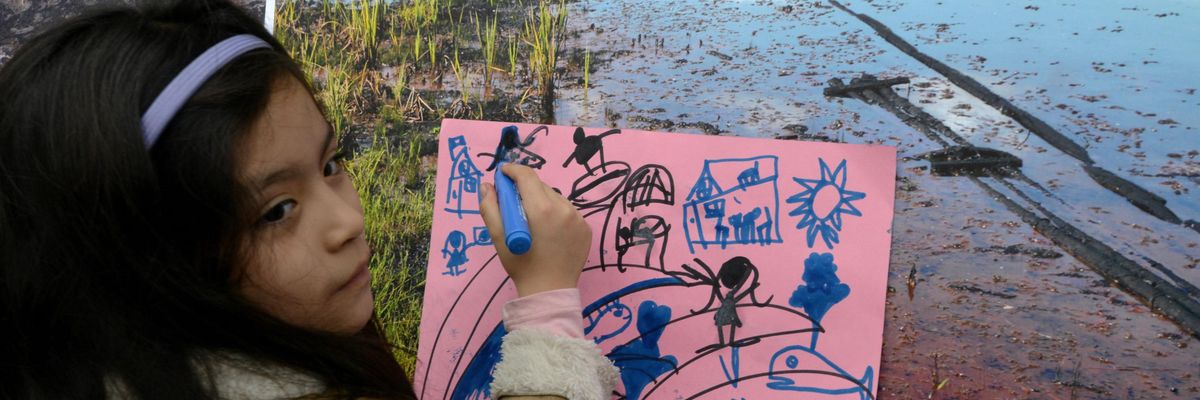Demanding stronger social and environmental support in northern Peru's Loreto region, about 200 Indigenous protesters on Wednesday announced a strike two days after they began occupying a station of the North Peruvian Oil Pipeline controlled by state-owned oil company Petroperu.
The strike will continue until President Pedro Castillo, who took office in July and has
pledged a redistribution of wealth from mining projects to help local communities, fulfills the Indigenous people's demands, said the Indigenous Association for Development and Conservation of Bajo Yurimaguas (AIDCBY).
"Not a single drop of oil is going to come out of the Amazon until the government takes care of us," said AIDCBY.
The group, as well as the Awajun Native Federation of the Apaga River (FENARA) and the Peoples Affected by Oil Activity (PAAP), are demanding the establishment of a trust fund to finance the cleanup of areas affected by oil spills as well as education and healthcare services in the region.
"Now we'll see the real face of the executive who campaigned about supporting Indigenous peoples."
Official statistics
show that at least 37 spills from the pipeline were recorded between 1996 and 2016.
According to the environmental protection group EarthRights International, local communities have been affected by major declines in crop yields and contaminated drinking water and have reported "a number of health problems stemming from the contamination, including nausea, migraines, vomiting, stomach pain, skin rashes, and even miscarriages among pregnant women; tests have confirmed contaminants in blood and urine."
The demonstrators called on Castillo and Energy Minister Ivan Merino to travel to Station 5, the pipeline station the groups have taken over. According to Telesur English, FENARA on Wednesday said the government should not "provoke with a police deployment" but instead allow for "the implementation of an intercultural dialogue."
Last year, three Amazonian Indigenous people were
killed and 17 demonstrators were injured after Peruvian security forces responded to protests over a pipeline run by Canadian firm PetroTal.
Petroperu's pipeline transports crude oil from northern Peru's Amazon regions to a refinery on the country's Pacific coast. The company was
forced to halt the pumping of oil this week as the groups took over Station 5.
Ismael Perez Petsa, a leader of the Lower Puinahua Indigenous Development and Conservation Association,
told Radio La Voz de la Selva Wednesday that the outcome of the protest is now in the Castillo administration's hands.
"Now we'll see the real face of the executive who campaigned about supporting Indigenous peoples," Perez Petsa said. "The ball is with them and today it's [a] government political decision."




